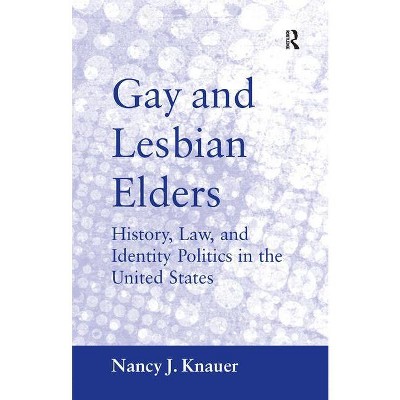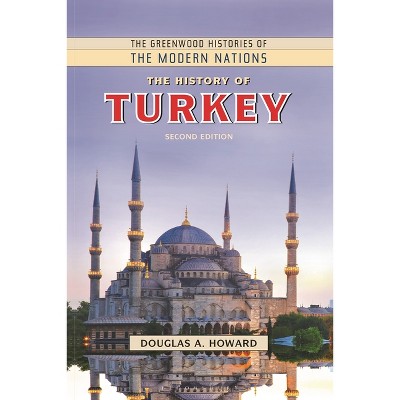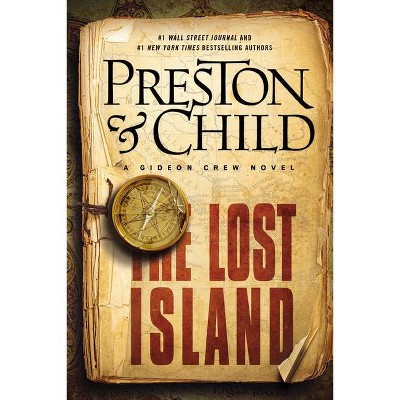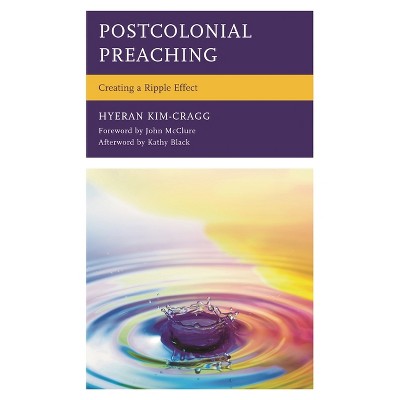Sponsored

Frankétienne and Rewriting - (After the Empire: The Francophone World and Postcolonial Fra) by Rachel Douglas (Hardcover)
$120.00
In Stock
Eligible for registries and wish lists
Sponsored
About this item
Highlights
- Frankétienne and Rewriting offers an overview the defining aesthetic and thematic components of Frankétienne's major works, particularly on the relation between his central aesthetic of the Spiral and the practice of rewriting that is prevalent in Caribbean literature.
- About the Author: Rachel Douglas is lecturer in Francophone Postcolonial Studies at the University of Liverpool.
- 206 Pages
- Biography + Autobiography, Literary Figures
- Series Name: After the Empire: The Francophone World and Postcolonial Fra
Description
About the Book
Frankétienne and Rewriting offers an overview the defining aesthetic and thematic components of Frankétienne's major works, particularly on the relation between his central aesthetic of the Spiral and the practice of rewriting that is prevalent in Caribbean literature. Situati...Book Synopsis
Frankétienne and Rewriting offers an overview the defining aesthetic and thematic components of Frankétienne's major works, particularly on the relation between his central aesthetic of the Spiral and the practice of rewriting that is prevalent in Caribbean literature. Situating this practice within the framework of postcolonial studies, Douglas argues that literary characteristics in Frankétienne connect with changing political, social, economic, and cultural circumstances in Haiti as he rewrites.Review Quotes
An assured and lively study of a neglected writer. Douglas breaks new ground in her analysis of the role of rewriting in Frankétienne's work; her book marks an important contribution to francophone postcolonial studies, and will be of significant interest to scholars of Caribbean literature in the broadest sense.
Douglas's study becomes a meticulous reading of various editions of Franketienne's works in order to illustrate the 'principal dynamics of a spiralist literary aesthetic.'
Few contemporary authors have produced such a challenging - and fascinating - literary oeuvre as Haitian author Frankétienne, and Rachel Douglas' magisterial study is an invaluable source for anyone with an interest in Caribbean culture in general and Frankétienne in particular. Douglas approaches Frankétienne's corpus through the prism of rewriting, and convincingly argues that the act of rewriting proves invaluable to tracing the evolutions in the author's work at different moments in his personal, aesthetic and political trajectory.... The study skilfully interweaves theoretical insights with a series of nuanced close readings of Frankétienne's texts, which succeed in conveying the excitement of this prolific author's work.... Beyond the book's evident appeal to Francophone and postcolonial literary and cultural specialists wishing to deepen their knowledge of the work of Frankétienne, it will undoubtedly also be of interest to researchers working on book history, reception studies and translation studies.
In Frankétienne and Rewriting Rachel Douglas presents an elegant overview of Haitian spiralist writer Frankétienne's literary praxis....In each of these chapters Douglas is faced with the challenge of establishing critical order while respecting the deliberate chaos of Frankétienne's aesthetic. Her manner of engaging with the spiralic nature of both the individual works and the whole of Frankétienne's corpus is commendable.
In her Conclusion, Douglas very generously suggests myriad directions for future study that might build on her work, moving beyond analysis of Frankétienne's corpus to explorations of the specific practices of other Caribbean rewriters.
In Franke´tienne and Rewriting Rachel Douglas presents an elegant overview of Haitian Spiralist writer Franke'tienne's literary praxis, connecting the author's 'near-obsessive' (p. 1) revising to broader postcolonial Caribbean literary phenomena Douglas rightly insists on the importance of fully contextualizing the works in question, considering them always with respect to the changing historical, socio-economic, and cultural realities of twentieth-century Haiti. In each of these chapters Douglas is faced with the challenge of establishing critical order while respecting the deliberate chaos of Franke'tienne's aesthetic. Her manner of engaging with the spiralic nature of both the individual works and the whole of Franke'tienne's corpus is commendable. In her Conclusion, Douglas very generously suggests myriad directions for future study that might build on her work, moving beyond analysis of Franke'tienne's corpus to explorations of the specific practices of other Caribbean rewriters
In Franke´tienneand Rewriting Rachel Douglas presents an elegant overview of Haitian Spiralist writer Franke´tienne's literary praxis, connecting the author's near-obsessive revising to broader postcolonial Caribbean literary phenomena. Douglas's study offers a comparative analysis of five major works, emphasizing the ethical and the aesthetic perspectives.
Rachel Douglas' timely study offers remarkably insightful close readings of a writer who has for too long remained unknown to all but a few specialists. Moving decisively beyond earlier models of genetic criticism, Douglas' striking proposition is to analyze 'rewriting' as a primary dimension of Frankétienne's literary productivity. Under Douglas' thoughtful gaze, Spiralism stands revealed as a literature in perpetual movement and self-refashioning, one of outrageous invention and exuberant expressivity that alone has the imaginative resources to articulate the unfathomable terror and beauty of Haitian modernity.
Rachel Douglas's book makes an excellent contribution to this still-nascent body of critical work. Taking the practice of rewriting as a marker of Frankétienne's infinitive inventiveness and of the changing contexts in which he writes, Douglas argues very persuasively that the author's work should not be read as static entity, but as a fluid, ever-evolving phenomenon.... Douglas excels particularly in relating textual analysis to the social and political contexts of writing.... This well written, assured and perceptive study will be an important point of reference for future research on Frankétienne, and should also serve to encourage the incorporation of his searching, complex, yet curiously lucid work into Francophone, Caribbean, and postcolonial reading lists.
About the Author
Rachel Douglas is lecturer in Francophone Postcolonial Studies at the University of Liverpool.Dimensions (Overall): 9.0 Inches (H) x 6.0 Inches (W) x .5 Inches (D)
Weight: .98 Pounds
Suggested Age: 22 Years and Up
Number of Pages: 206
Genre: Biography + Autobiography
Sub-Genre: Literary Figures
Series Title: After the Empire: The Francophone World and Postcolonial Fra
Publisher: Lexington Books
Format: Hardcover
Author: Rachel Douglas
Language: English
Street Date: May 1, 2009
TCIN: 1004111767
UPC: 9780739125656
Item Number (DPCI): 247-23-3057
Origin: Made in the USA or Imported
If the item details aren’t accurate or complete, we want to know about it.
Shipping details
Estimated ship dimensions: 0.5 inches length x 6 inches width x 9 inches height
Estimated ship weight: 0.98 pounds
We regret that this item cannot be shipped to PO Boxes.
This item cannot be shipped to the following locations: American Samoa (see also separate entry under AS), Guam (see also separate entry under GU), Northern Mariana Islands, Puerto Rico (see also separate entry under PR), United States Minor Outlying Islands, Virgin Islands, U.S., APO/FPO
Return details
This item can be returned to any Target store or Target.com.
This item must be returned within 90 days of the date it was purchased in store, shipped, delivered by a Shipt shopper, or made ready for pickup.
See the return policy for complete information.
Frequently bought together

$10.38 - $23.82
MSRP $18.00 - $38.00 Lower price on select items
4.6 out of 5 stars with 194 ratings
Trending Non-Fiction

$19.31
was $20.98 New lower price
4 out of 5 stars with 64 ratings

$18.28
was $19.58 New lower price
4.7 out of 5 stars with 17 ratings

$4.59
MSRP $7.99
Buy 2, get 1 free select books
4.8 out of 5 stars with 123 ratings

$6.20
MSRP $10.95
Buy 2, get 1 free select books
4.8 out of 5 stars with 33 ratings

$7.09
MSRP $9.99
Buy 2, get 1 free select books
4.9 out of 5 stars with 46 ratings










